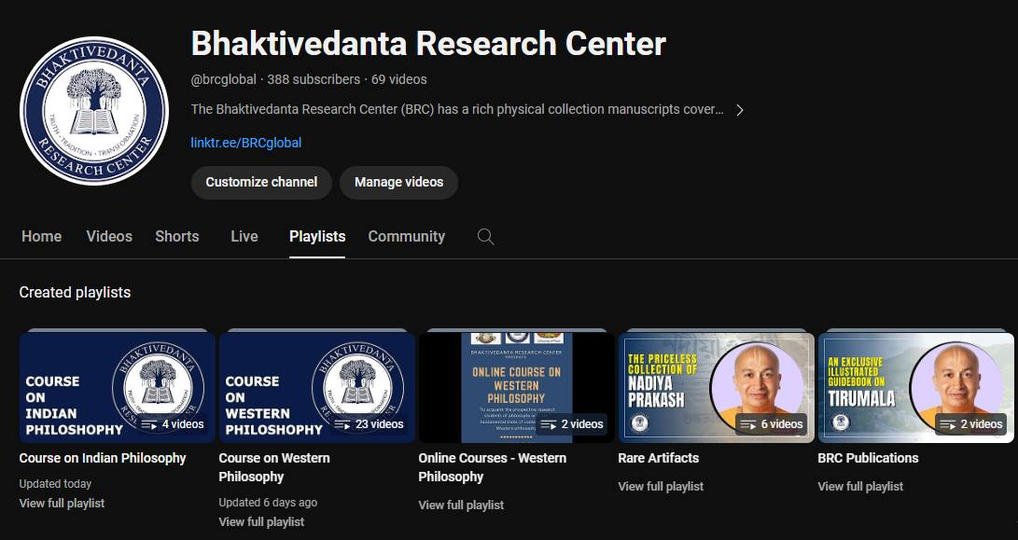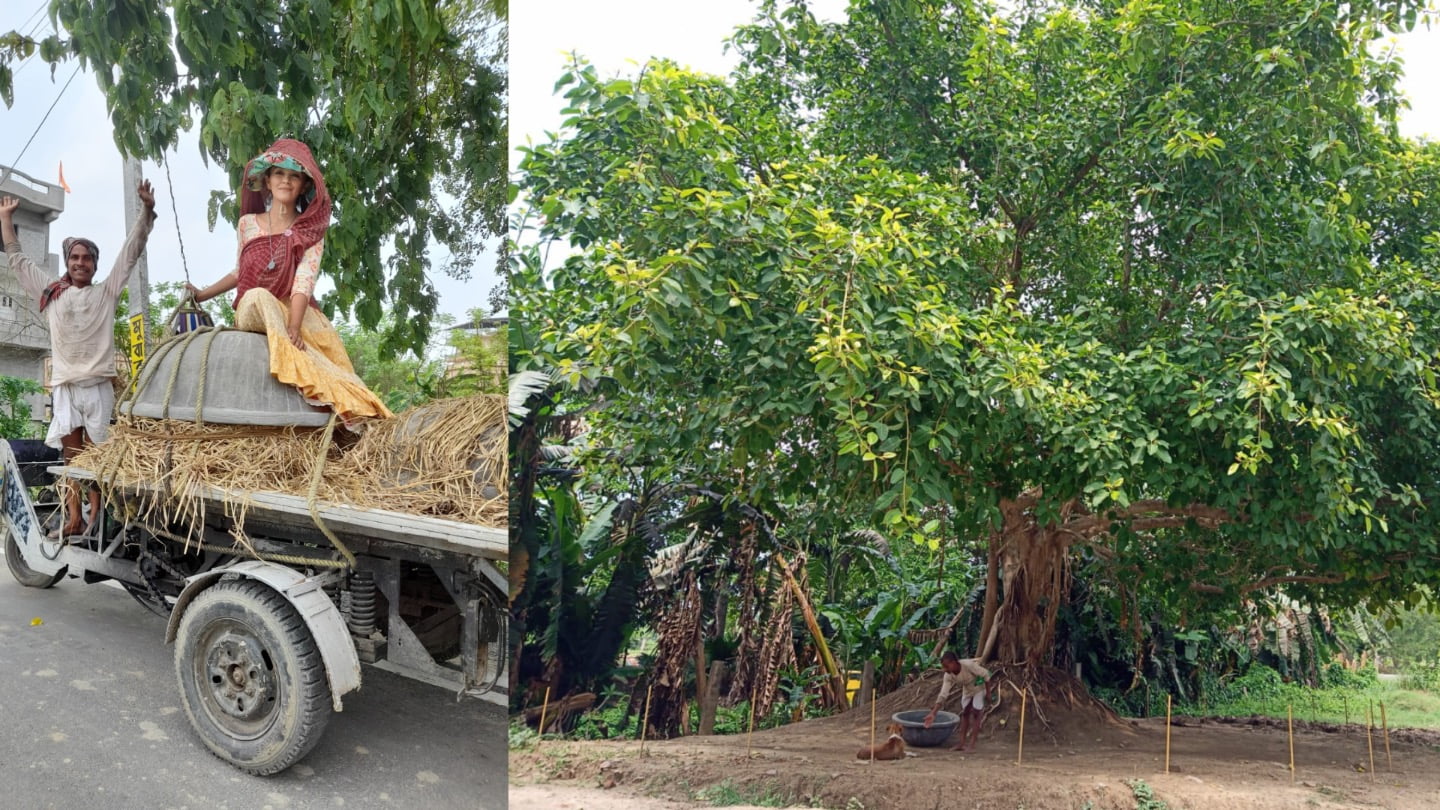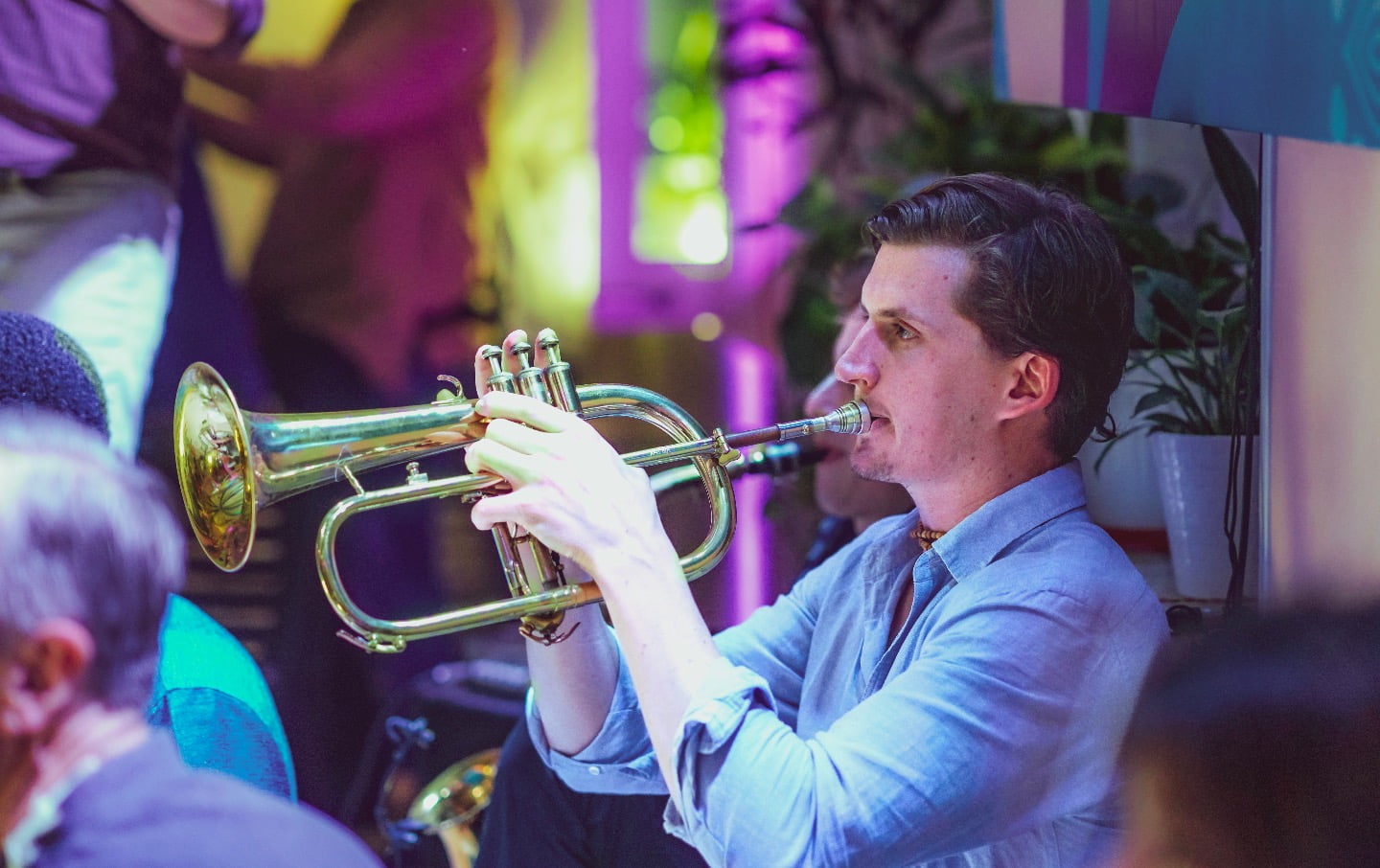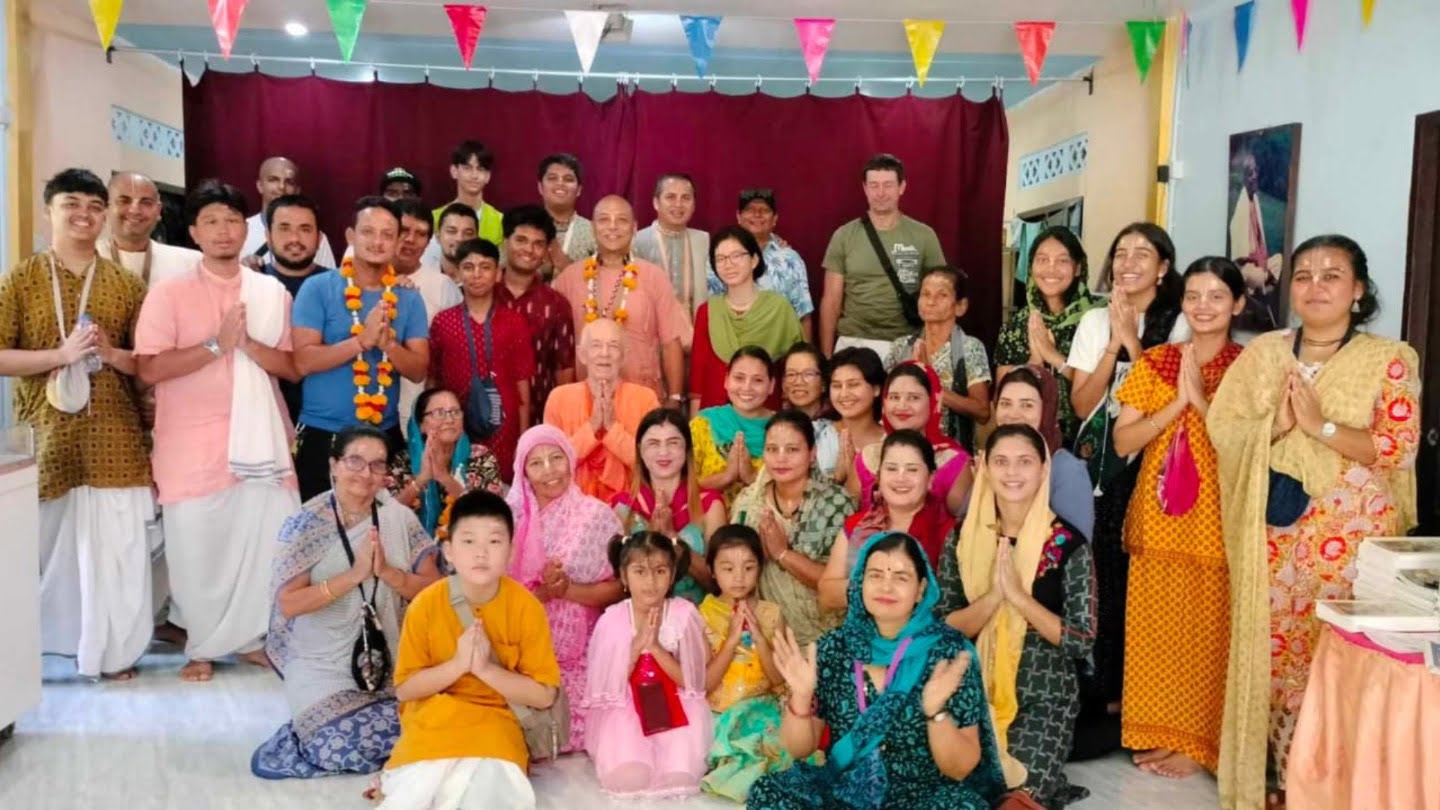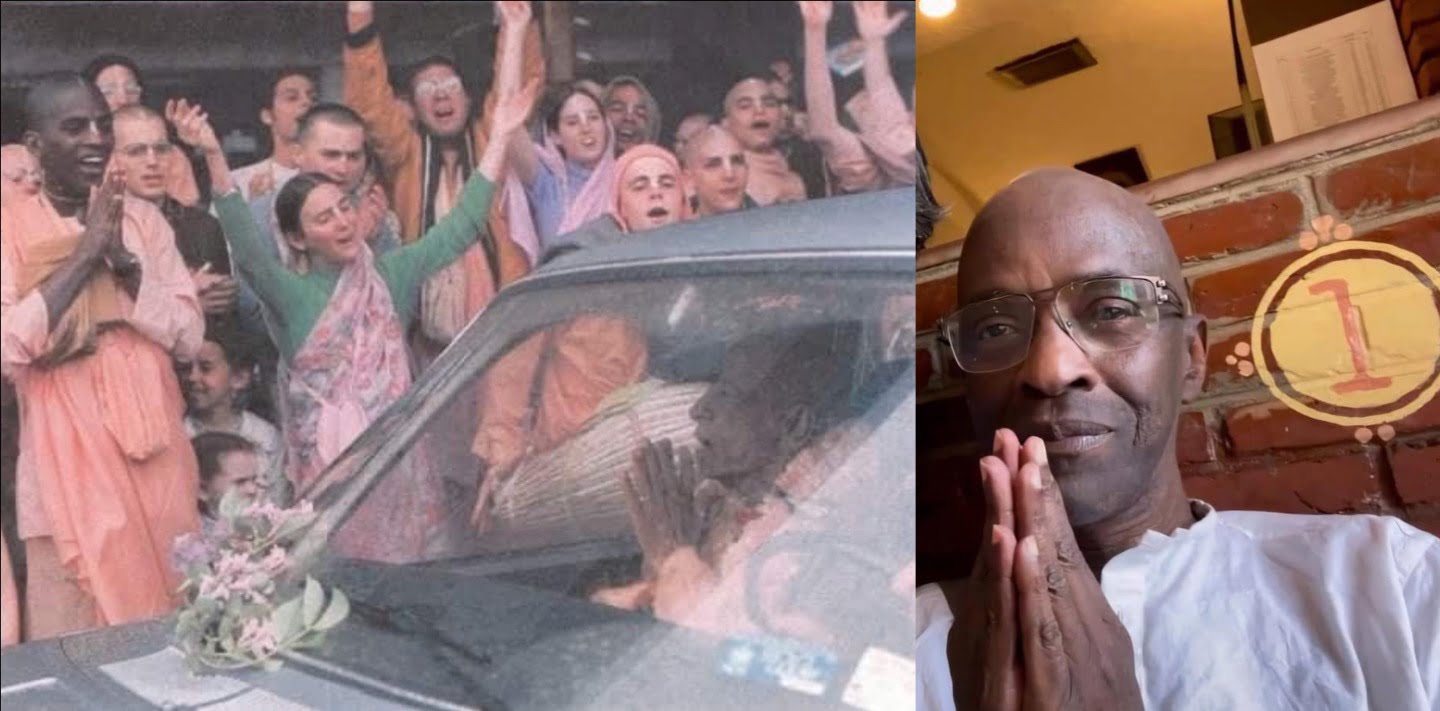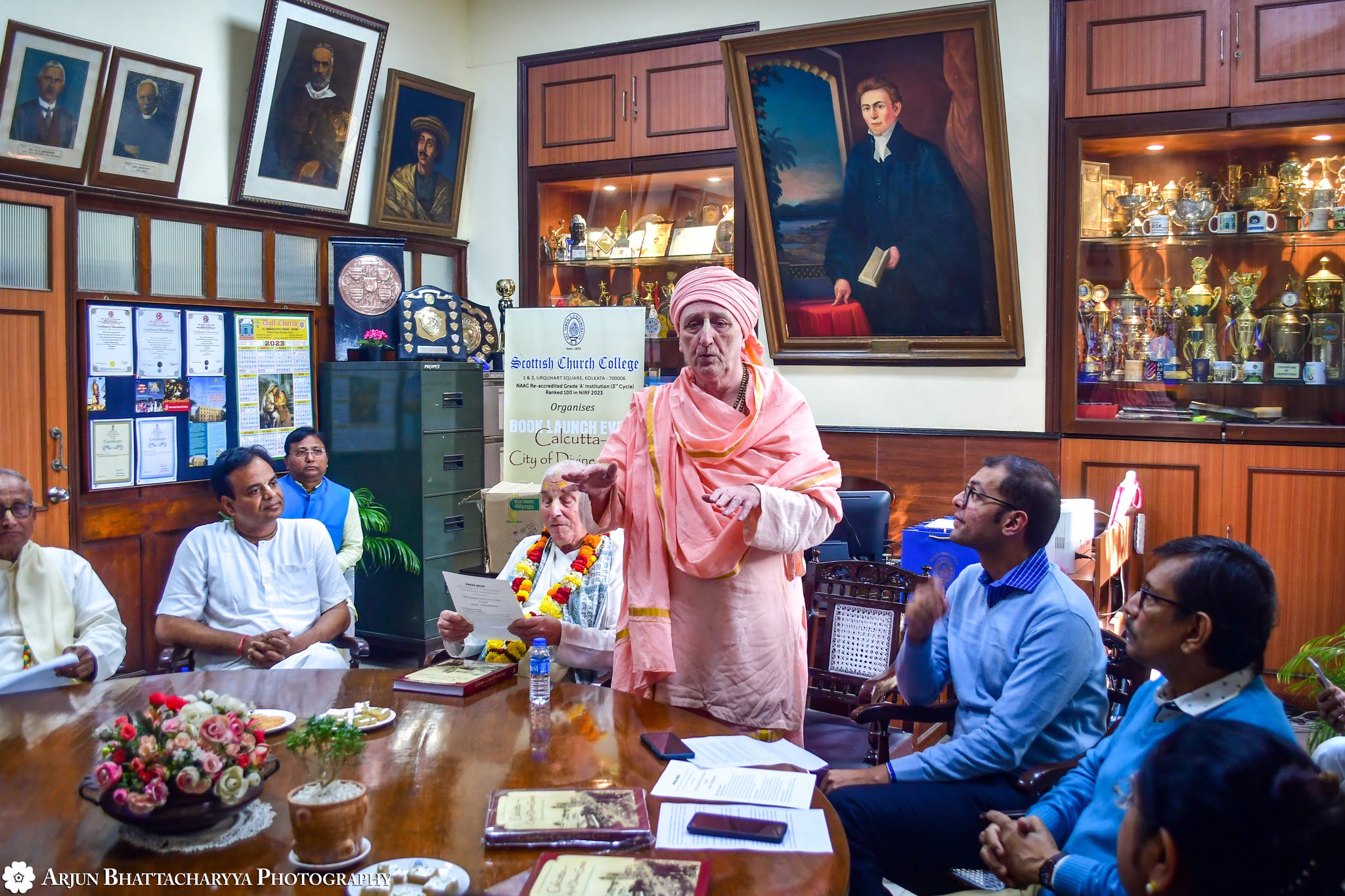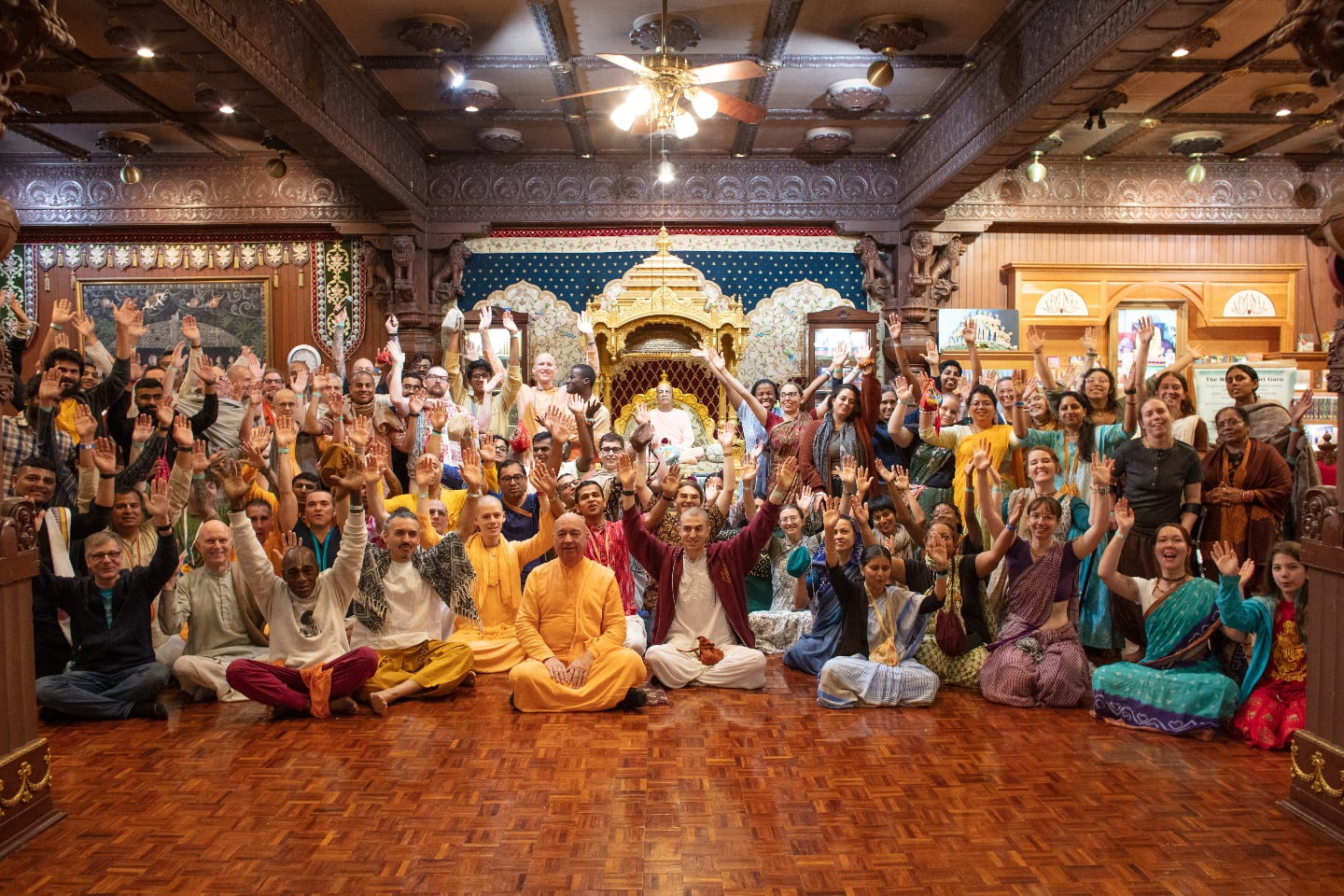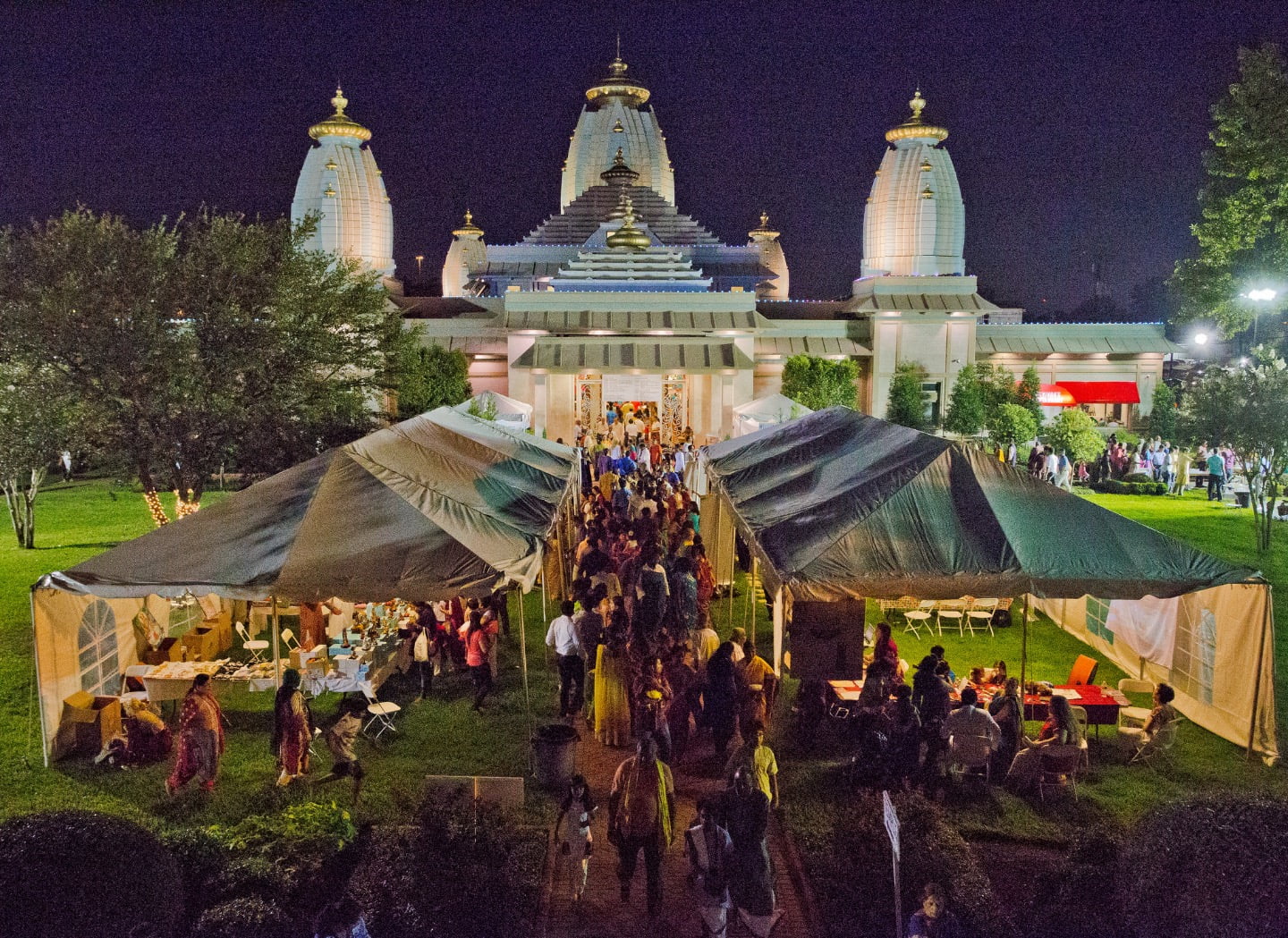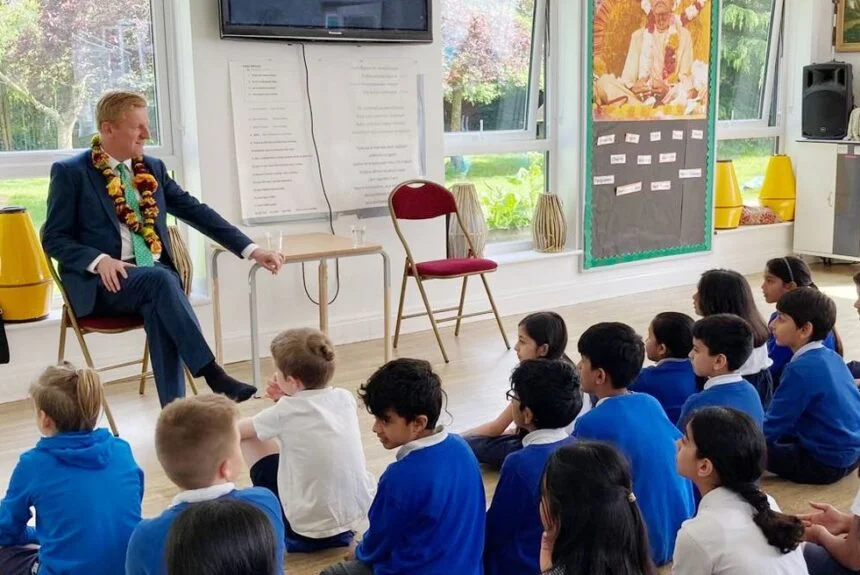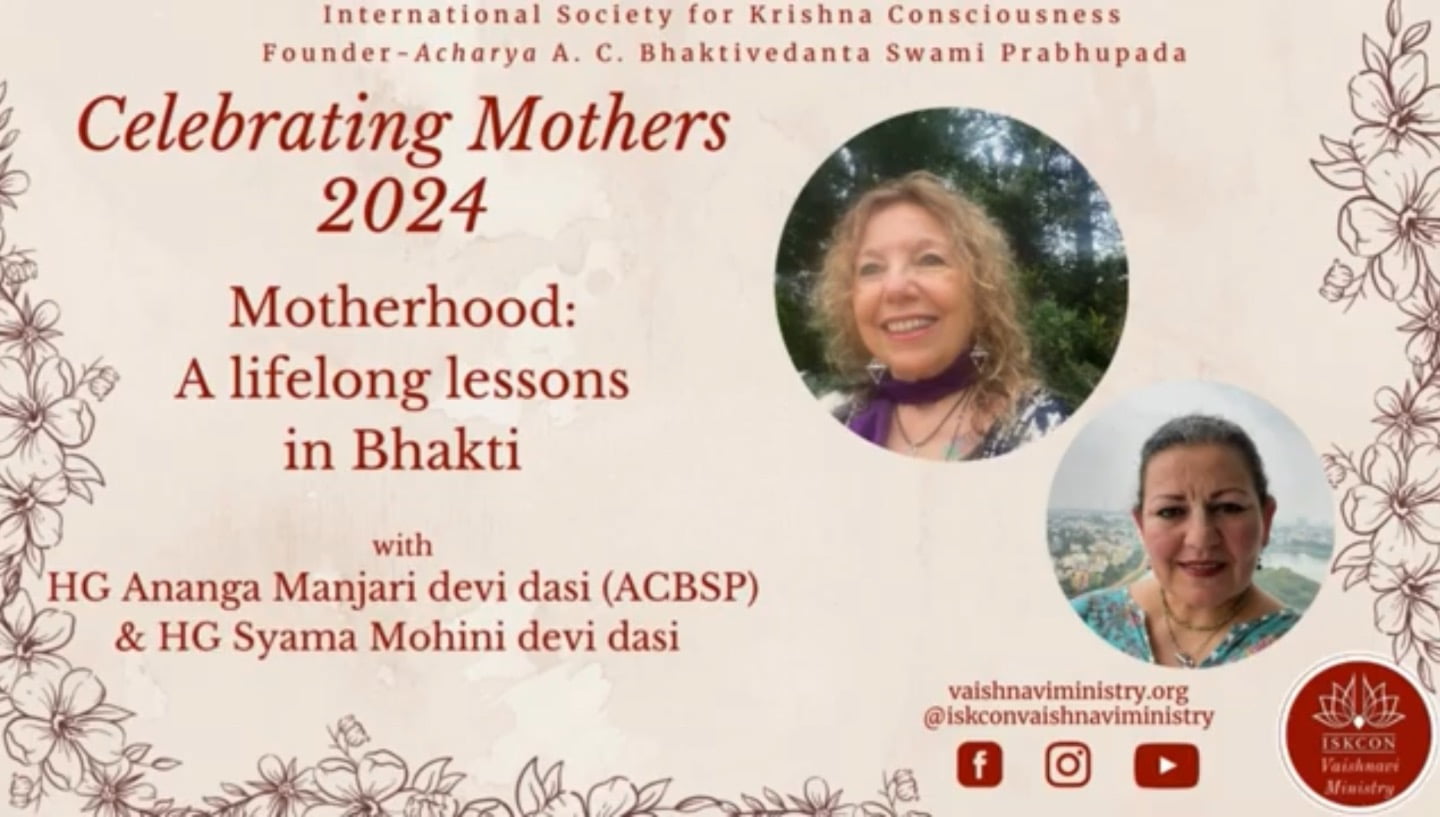Vaishnava Care: A Russian Tale of True Christmas Spirit
By Madhava Smullen | Дек 25, 2010
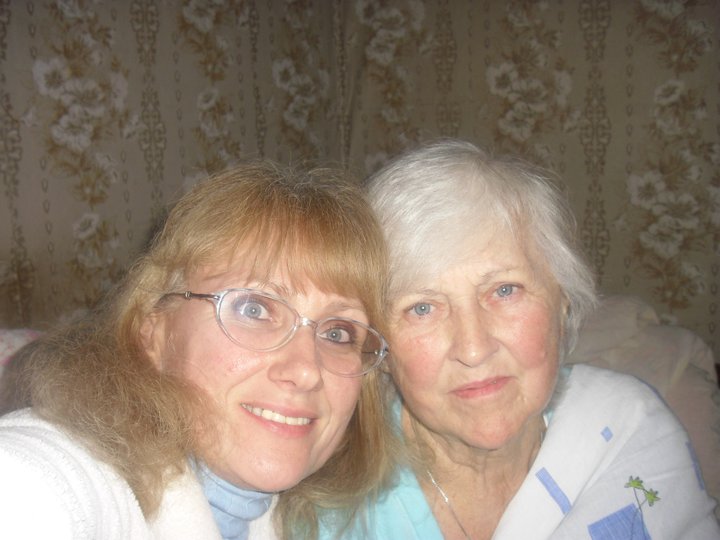
During this time of year, we are all aware to some degree of the idea of “Christmas spirit,” of making some endeavor to give to others in the season of goodwill. But few of us embody this caring spirit as much as a quiet, uncelebrated group of Russian devotees did this winter.
Our story begins with second generation devotees Tara and Radha, who, along with their parents Paravyakta Dasa and Bhaktimati Dasi, moved from their native Russia to Israel in 2003, and then to Toronto, Canada in 2008.
In Russia, Paravyakta Dasa and his wife introduced Krishna consciousness to the city of Nalchik, where he served as temple president from 1991 to 1998. Today, he and his wife are well-loved by the devotees at their new home in Toronto, who affectionately call them “mama and papa”; their daughters, meanwhile, are part of the burgeoning youth community, cooking at the temple, taking care of the sacred plant Tulasi, and organizing monthly temple clean-ups.
About three months ago, Tara and Radha’s seventy-two-year-old grandmother, Maria Kudryavcev, began to experience serious blood pressure problems. This came after a lifetime of health problems since the age of thirty, when she had been in several car accidents. As well as enduring multiple surgeries on her legs, she had also suffered breast cancer.
Her daughter, Bhaktimati Dasi, wanted to visit her but did not have the means to immediately make the expensive trip from Canada to Russia. So she contacted Trigunamayi Dasi, a devotee in Russia with whom she had kept in touch over the years, and asked her to check on her mother—which she did, on a semi-regular basis.
As Maria’s situation worsened, Bhaktimati asked Trigunamayi to get her mother a sphygmomanometer, a machine used to measure blood pressure. Trigunamayi in turn asked Bhakta Hasik, another devotee, to purchase it for her. Obliging, he drove around the city for hours, searching for the specialized automatic blood pressure machine.
Meanwhile, Maria was busying herself in her yard, when she lost her balance and fell to the ground. Scrambling in the mud, she tried to get up but couldn’t. Her husband had passed away two years before, so she was alone. For the next half hour, she screamed for help, but nobody came.
Just at that time, Hasik arrived by ‘coincidence’ with the blood pressure machine, completely unaware of what had happened. Hearing Maria’s screams, he leapt over her fence and helped her to her feet.
He called emergency services, who arrived and told Bhaktimati’s mother that her health was in such a dire condition that she didn’t have a choice—she had to go to the hospital.
Checking herself into the hospital in Nartkala town, forty minutes drive from Nalchik, Maria found herself in the middle of a nightmare.
“Public hospitals in Russia are not the best places to recover comfortably, to put it mildly,” says Maria’s granddaughter Tara. “The nurses get an extremely low paycheck—only about one 100 US dollars a month—and at $500 a month, the doctors don’t fare much better. And that’s despite the fact that prices in Russia are close to what they are in the US. So the hospital staff don’t make much of an effort to care for their patients.”
It didn’t help that Maria was there alone, with no family members to fight for her right to be taken care of properly. The food wasn’t properly cooked, and there was only one bathroom for all the patients on the entire floor.
Knowing that her mother’s stay in the hospital could actually degenerate her condition rather than helping her to recover, Bhaktimati once again turned to Trigunamayi for help. Trigunamayi readily obliged, checking on Maria and bringing her sanctified vegetarian food called prasadam once or twice a week.
“You must remember that these devotees had not known my grandmother at all before they had recently begun to check up on her,” says Tara. “In fact, the only thing they did know about her was that she had been unfavorable to Krishna consciousness, and had actually tried to take my mother to court when Radha and I were little kids for not feeding us meat, a staple food in Russia.”
Despite this, the devotees continued to go out of their way, ignoring their own inconvenience, to take care of Maria.
At one point during her stay in the hospital, Maria called her daughter to tell her that she had not gone to the bathroom for five days, and had been too embarrassed to tell the nurses. Whenever she had tried, she had been very slow due to her disabilities, and people had knocked on the door of the shared bathroom and shouted at her to get out until she did.
Terrified—for she knew that at her mother’s age this could block her system and kill her—Bhaktimati called Trigunamayi in the middle of the night and explained the problem to her.
Without hesitation, Trigunamayi immediately went to the hospital to speak to the nurse personally, explaining the problem and saying that Maria must be treated with an enema.
“As soon as the nurse had given my grandma the enema, she just left,” says Tara’s sister Radha. “But Trigunamayi stayed in the bathroom with her for an hour waiting for her to go, and sending the people away who rapped on the door impatiently. When the first enema did not help, she went back to the nurse, who just told her not to worry about it. Trigunamayi insisted and pushed, until finally the nurse administered a second enema, which did work, and my grandma was saved from a dangerous situation.”
After this, Trigunamayi and another devotee, Avani Dasi, made a visiting schedule and came to see Maria twice a day every single day with prasadam for nearly a month, until Bhaktimati was finally able to fly to Russia.
Meanwhile, Bhakta Hasik, who had helped Maria when she fell in her yard, came to see her occasionally too. During one visit, when he noticed that her crutches were broken, he brought them home, fixed them, and returned them without even being asked.
“It was not that these devotees were the most fortunate themselves, and had all the time and money in the world to do charitable deeds,’ says Radha. “Trigunamayi is elderly and has her own health problems to worry about. And Avani has a young son and a sick father to care for. But still, they managed to set aside the time for my grandma.”
Experiencing first hand the selflessness of these devotees, Maria’s perception of ISKCON members changed completely.
“She developed a relationship with them, and she began to love them,” Tara says. “Then she started to invite them to visit her at home once she left the hospital. She told my mom that she could use a room in her house to hold devotee programs, something she would never have allowed before. And although she had once been ready to take legal action to get us to eat meat, she became vegetarian—her experience of prasadam, as well as the health advice of my mom and the devotees, convinced her. Now she understands that she can still be healthy without meat.”
Keshava Dasa, another dedicated second-generation Toronto devotee and Tara’s husband-to-be, is moved by her grandmother’s story and the lessons it gives.
“It’s a testament to the worldwide family that Srila Prabhupada has given us, that devotees can move mountains out of their care and love for each other,” he says. “I was talking with Tara the other day, and we had to ask ourselves if we could have done what they did for someone they didn’t even know and who had even derided them in the past. And they were doing it without the comforts that we have here in the West—they have their own very real struggles. It really made me think about how I shouldn’t take what I have for granted, and how I have no excuse not to go the extra mile for other people, during this Christmas season of goodwill and beyond.”
“Myself, Radha, and our mom are so indebted to these devotees,” says Tara. “They came to help my grandmother when no one else did, not even her friends and neighbors or her son in Moscow who is a doctor. A real Vaishnava is described as one who is kind and compassionate to all living entities, and I feel that we can all learn from Trigunamayi, Avani, and Hasik just how to embody those qualities.”
Today, Maria has been discharged from the hospital, and will spend her Christmas being cared for by her devotee daughter Bhaktimati at her home in Russia.
She will never forget the kindness shown to her by three exemplary devotees of Krishna.
“We hope our story will inspire everyone to reach out to another devotee or fellow soul this Christmas,” says Tara. “To go that extra mile to care for others, in true Vaishnava spirit.”





